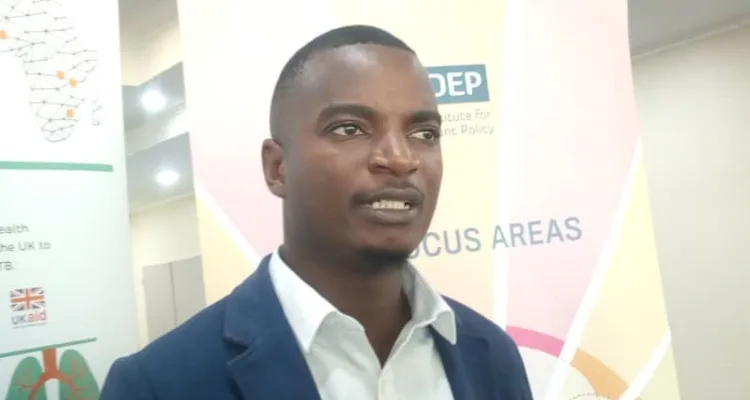
Despite facing challenges and stigma, women in Malawi have shown dedication and braveness as they go to hospital to get tested for Tuberculosis (TB) and once they are diagnosed with TB, they are likely to accept their status by starting TB treatment on the spot than men.
Malawi24 has found out that women diagnosed with TB have been more proactive when it comes to TB treatment and they willingly follow the prescriptions given by medical personnel once diagnosed with the disease.
In an interview, National Tuberculosis and Leprosy Elimination Programme (NTLEP) HIV and AIDS expert Dr Samuel Chirwa said that the concept of gender and TB is a new issue and they are working together with other stakeholders in developing a policy framework to incorporate the issue.
“While the World Health Organization (WHO) prevalence figures indicate that men are more affected by Tuberculosis with an average of 1.8 male cases for every woman found with the disease, experts are still conducting research on why men’s health seeking behavior towards the disease is not impressive,” he explained.
On presumptive TB cases, which is about patients who present with symptoms or signs suggestive of TB (previously known as a TB suspect), Chirwa said presumptive TB cases in 2021 for males were 48,315 and for females were 46,986 while in 2022, the presumptive cases were 80,748 for males and 85,214 for females.
On TB notification, it was 8,842 for males and 5,543 for females in 2021 while in 2022, TB notification was 8,266 for males and 5,384 for females.
On his part, Research and Policy Associate for African Institute for Development Policy (AFIDEP) Dr Benjamin Azariah Mosiwa said that the political analysis AFIDEP conducted shows that there is an overreliance on foreign borrowing and donor aid and widespread poverty compounding health issues such as TB and HIV/AIDS.
He explained that there is poverty contribution to poor hygiene, worsening infectious disease and also social factors such as faith- based healing which are affecting health-seeking behavior.
“However, there are some gaps that TB is predominantly among men, as such we need to have a strong language in our policies and guidelines on how to approach men.

“We need to advocate more on this issue so that both men and women should be on the same level when it comes to medical care assessment. Men should also be at the forefront to access medication for TB to leave no none behind. Once we have done that, it will be easier to come up with other strategies,” he said.
Mosiwa also stressed on focusing on innovative approaches targeting men, including integrating TB awareness activities into non-traditional activities like football matches and also developing gender-specific strategies, which consider men’s specific health-seeking behaviors and preferences.
Civil Society Organizations such as Women for Fair Development (WOFAD) have been working together with different stakeholders in the fight against TB.
Executive Director for WOFAD Lindiwe Linnah Matanya said failure to reach out to more people is due to inadequate resources hence asking for support from different partners.
One of the TB survivors from Lilongwe, Sileni Gobede, testified about her illness which she said could have cost her life if she refused to go to hospital and seek medication on time.
Gobede who is now healthy and is able to do activities, encouraged people in the country to get treatment on time when they experience signs of TB.
AFIDEP has partnered with different organizations including the JounAIDS -Malawi under the LIGHT Consortium to scale up efforts on fight the against Tuberculosis.
TB is curable, but early diagnosis and treatment initiation is an essential prerequisite. TB patients, if not diagnosed, will continue to spread the infection. Each active TB case can infect 10-15 people during a year, if left untreated. If left untreated, it is likely that more than half of cases would die by three years.
Data from Malawi’s National Tuberculosis and Leprosy Elimination Programme (NTLEP) reveals that there are more men (males 15 years or older) with TB than women. In 2021 for instance, men accounted for 57% of TB cases in the country and this attributed to biological and sociocultural factors that make men more susceptible to the disease and delay seeking treatment when symptoms appear. This contributes to the spread of TB in Malawi, and the number of TB deaths.
The World Health Organization (WHO) has set an ambitious target to end the TB epidemic by 2035 – a reduction in the number of patients suffering from TB by 90%; and a reduction in the number of deaths from TB by 95%.














